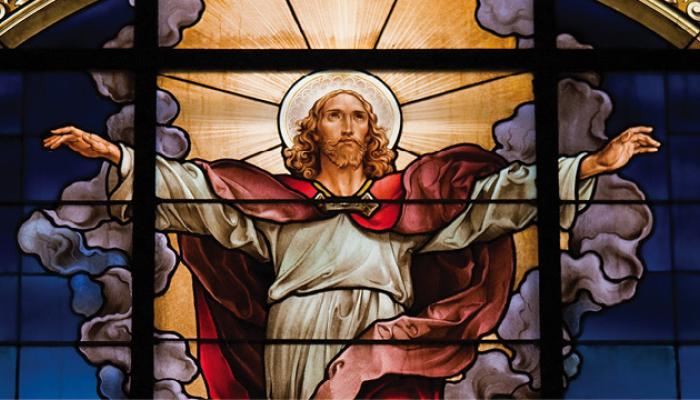
1.47 Dois-je avoir peur du purgatoire ?
C’est par sa miséricorde et son amour infinis que Dieu a instauré le purgatoire. Il veut que chacun soit sauvé pour être avec lui au ciel. Si notre âme n’est pas immaculée ou porte encore la trace de nos péchés à notre mort, c’est alors que nous allons au purgatoire.
Au purgatoire nous sommes purifiés et préparés au paradis, parce que nous éprouvons un cuisant sentiment de honte et de regret de nos péchés. Le purgatoire est temporaire. Ceux qui souffrent sur terre, par la guerre, la douleur, la torture ou la persécution sont déjà en train d’être purifiés pour le ciel (Mt 5,4-10)Mt 5,4-10 : Heureux ceux qui pleurent, car ils seront consolés. Heureux les doux, car ils recevront la terre en héritage. Heureux ceux qui ont faim et soif de la justice, car ils seront rassasiés. Heureux les miséricordieux car ils obtiendront miséricorde. Heureux les cœurs purs, car ils verront Dieu. Heureux les artisans de paix, car ils seront appelés fils de Dieu. Heureux ceux qui sont persécutés pour la justice, le royaume des Cieux est à eux.. Nous pouvons également réduire notre temps au purgatoire en priant, en offrant la Sainte Messe et par d'autres moyens.
What is purgatory?
Purgatory, often imagined as a place, is actually a condition. Someone who dies in God’s grace (and therefore at peace with God and men) but who still needs purification before he can see God face to face in purgatory.
When Peter had betrayed Jesus, the Lord turned around and looked at Peter: “And Peter went out and wept bitterly”—a feeling like being in purgatory. Just such a purgatory probably awaits most of us at the moment of our death: the Lord looks at us full of love—and we experience burning shame and painful remorse over our wicked or “merely” unloving behavior. Only after this purifying pain will we be capable of meeting his loving gaze in untroubled heavenly joy. [Youcat 159]
How can we help the souls being purified in purgatory?
Because of the communion of saints, the faithful who are still pilgrims on earth are able to help the souls in purgatory by offering prayers in suffrage for them, especially the Eucharistic sacrifice. They also help them by almsgiving, indulgences, and works of penance. [CCCC 211]
In what way does the Church participate in the eucharistic sacrifice?
In the Eucharist the sacrifice of Christ becomes also the sacrifice of the members of his Body. The lives of the faithful, their praise, their suffering, their prayers, their work, are united to those of Christ. In as much as it is a sacrifice, the Eucharist is likewise offered for all the faithful, living and dead, in reparation for the sins of all and to obtain spiritual and temporal benefits from God. The Church in heaven is also united to the offering of Christ. [CCCC 281]
Can we help the departed who are in the condition of purgatory?
Yes, since all those who are baptized into Christ form one communion and are united with one another, the living can also help the souls of the faithful departed in purgatory.
When a man is dead, he can do nothing more for himself. The time of active probation is past. But we can do something for the faithful departed in purgatory. Our love extends into the afterlife. Through our fasting, prayers, and good works, but especially through the celebration of Holy Eucharist, we can obtain grace for the departed. [Youcat 160]
You may cleanse me in this life, and make me such, that I may after that stand in no need of the cleansing fire, for those 'who are to be saved, yet so as by fire' (1 Cor. 3:15). And because it is said, 'he shall be saved,' that fire is thought lightly of. For all that, though we should be 'saved by fire', yet will that fire be more grievous than anything man can suffer in this life whatsoever. [St. Augustine, Expositions on the psalms, 37:3 (ML 36,397)]





